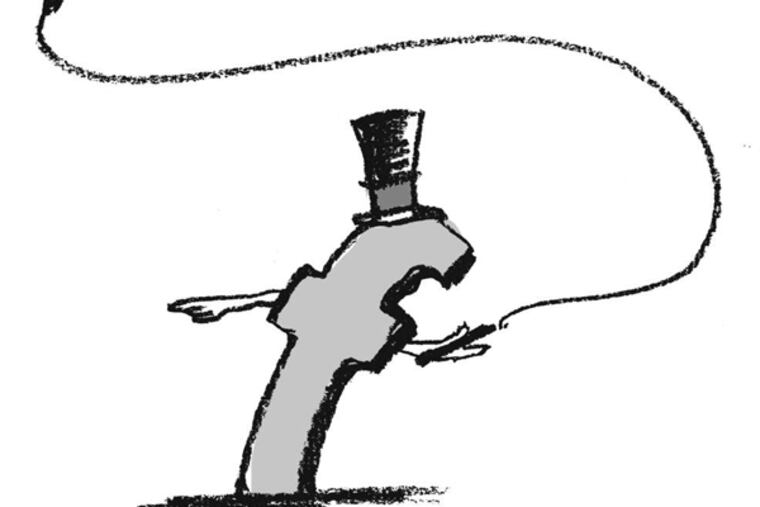Facebook's self-affirmation pushes GOP out of mainstream
Steve Welch was a Republican candidate for U.S. Senate this year The Sunday morning before the election, my daughter and I attended a candidates' breakfast in Chester County. The room was packed with passionate Republican volunteers. The energy level bordered on exuberance, as people believed Pennsylvania was in play in the presidential race. In fact, one ardent political operative for the Pennsylvania Pastors Network told me he believed Mitt Romney would likely win Pennsylvania by 10 points.

Steve Welch
was a Republican candidate for U.S. Senate this year
The Sunday morning before the election, my daughter and I attended a candidates' breakfast in Chester County. The room was packed with passionate Republican volunteers. The energy level bordered on exuberance, as people believed Pennsylvania was in play in the presidential race. In fact, one ardent political operative for the Pennsylvania Pastors Network told me he believed Mitt Romney would likely win Pennsylvania by 10 points.
That night, my three children, my wife, and I trekked out to Bucks County to attend a Romney rally. We arrived over an hour early, with tickets in hand, and were unable to get into the event. More than 30,000 people attended the rally, and to say the place was electric would be an understatement. As I stood in a mob in the cold, dark night holding on tight to my 3-year-old son for fear that I would lose him in the crowd, I heard nothing but absolute confidence that Romney would win Pennsylvania and the presidency.
Romney lost by five points. What happened?
The loss is a complicated story, but the cause of the misguided optimism can be found in a single word: Facebook.
Facebook is not only responsible for creating unwarranted expectations, it is killing the Republican Party. Facebook pushes combative tones, extreme views, and single-issue agendas to the forefront, while even-tempered discussions about comprehensive reforms are buried and rarely seen at all.
First, people are more likely to have friends on Facebook and in real life who agree with their political positions than oppose them. This is human nature. If you are politically active, you are likely to have friends who are also politically active, which means when you post something, your friends tend to agree with you. This turns Facebook into a political echo chamber of consenting "likes," shares, and comments.
Second, posts in Facebook that receive a lot of likes and comments rise to the top of people's feeds. This means more controversial posts appear more frequently, drowning out more mundane opinions and thoughts. The result is the amplification of extreme views, which focuses people on single issues. Not only has Facebook become an echo chamber; it amplifies the echoes of extreme views more.
Third, even if you happen to have friends of different political persuasions, their posts are less likely to come up in your feed. Facebook makes money when you click on posts and links, which means Facebook wants you to see things that you agree with. This subtly lulls you into believing the world in general shares your point of view. Not only is Facebook creating an echo chamber that amplifies extreme views, it doesn't allow outside voices into the chamber at all.
Finally, because Facebook feels like a news site, where real news is mixed with unqualified opinion, the two become indistinguishable. The fact-based argument of New York Times columnist David Brooks is given the same weight as the political activities and gut feelings of the Pennsylvania Pastor Network. So now the echo chamber is amplified, closed off, and validating opinions as facts in people's minds.
I am sure the same thing is happening to Democrats. Of course, since my Facebook profile indicates I am a Republican and I tend to click on conservative links, I will never see what Democrats are writing about.
The result is that Facebook is pushing the Republican Party into no man's land and convincing single-issue extremists in the party that it is a good idea in the process. The loud minority on Facebook drown out, and even worse, attack dissenting views. It turns out teenage girls are not the only people who use Facebook to bully individuals.
The Republicans should have control of the U.S. Senate, but the primary process that elected Todd Akin, Christine O'Donnell, and Sharron Angle produced candidates who could not win general elections. Worse, they damaged the party's brand through their style and tone - a style and tone that have been rewarded and amplified by their followers on Facebook. Currently, 50 percent of Americans have an unfavorable view of the Republican Party.
On Election Day, I went door to door talking to voters in Phoenixville, a predominantly Democratic town in my area. The talk on the street that day was drastically different from what I expected. It was clear I had let my Facebook echo chamber manipulate my perspective and, as the day wore on, I began to fear I wasn't the only one.
To my Republican friends who, like me, believe the federal government has overstepped its bounds in free markets, I beg of you to get off Facebook and engage in conversations with people who disagree with you. This is the only way we can grow as a party, and the only way the country will ever come together again.